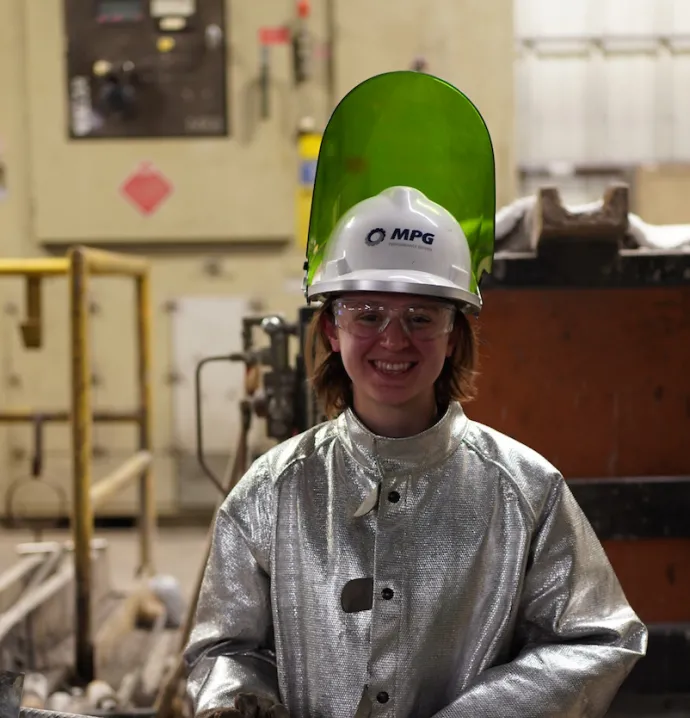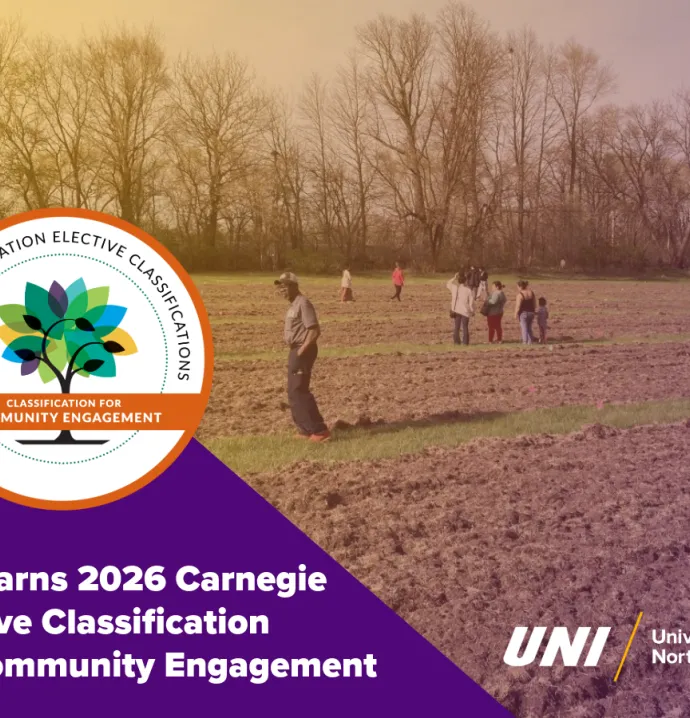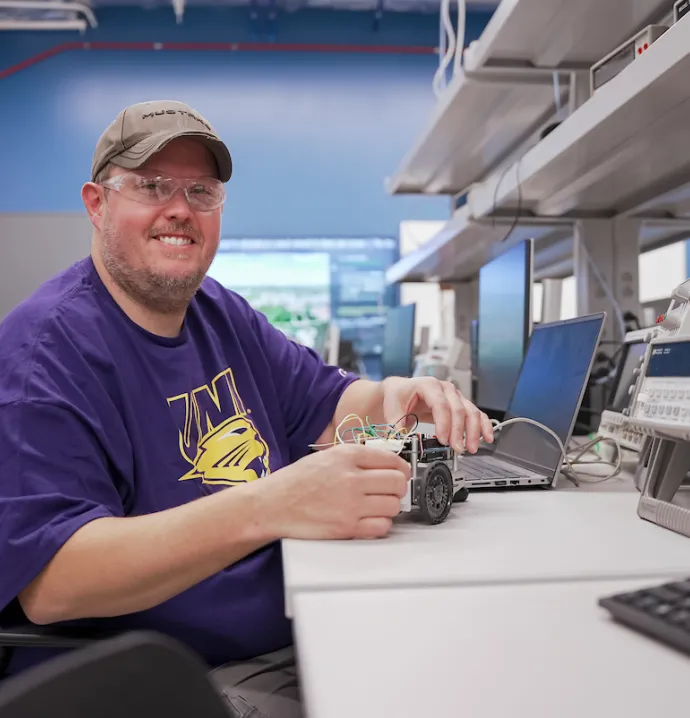Panthers You Should Know This Latinx Heritage Month
Panthers You Should Know This Latinx Heritage Month
Take a look around campus and you’ll find a Latinx Panther who’s making an impact at every level from faculty to staff to students. This week we’d like to introduce you to Juan Carlos Castillo, a professor in the Department of Languages and Literature who recently appeared in this video celebrating Latinx Heritage Month.
Juan Carlos Castillo grew up in Bilbao, Spain living between two worlds.
There was the urbane cultural center he called home in the autonomous Basque region and summers spent at the seaside town where his father grew up. Later, he came to the U.S. where the divide was even more pronounced as he earned degrees in Iowa and a Ph.d. in Maryland.
At UNI, the Department of Languages and Literature professor is helping students traverse worlds of their own. He serves as an informal advisor to many Latinx students across campus and started the Spanish for Heritage Speakers program. It’s a unique class offering for students who grew up speaking Spanish at home, but never got a chance for formal study.
“Some grew up in the States, some immigrated into the U.S. at various stages in their lives,” he said. “This is something that will help them in their work life. Being bilingual, it doesn’t matter what your profession is - that should open more doors and give you more opportunities in the future.”
Castillo is a linguist and expert on languages, InsideUNI interviewed him last year on how the COVID-19 pandemic had already altered language across the globe.
He speaks Spanish at home with his wife and two children and the family’s dog. (Castillo reports that their dog understands "ven" (come), "vamos" (let's go), "paseo" (walk) and "¿Quién es?" (who's there). “That doesn't mean she obeys, though,” he said.)
He enjoys passing on his family’s cultural heritage through cooking the recipes his mother taught him, stocking up on vegetables and other items at the Cedar Falls farmer’s market each week.
“In Basque culture, food is very important,” he said. “I try to make the same things and hopefully my family likes them.”




